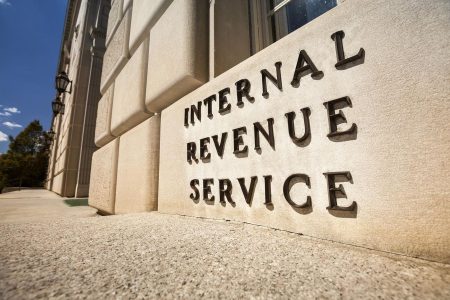Capital gains tax on commercial property can vary depending on factors like the length of ownership and the taxpayer’s income level. When a commercial property is sold at a profit, the difference between the property basis and the sale price is subject to capital gains tax. Understanding how the capital gains tax is calculated is key to finding effective exemptions or strategies for minimizing the tax burden for those involved in the transaction. For complex or high-value sales, a financial advisor can work with you to manage your liability.
Have Questions About Your Taxes?
A financial advisor may be able to help. Match with an advisor serving your area today.
Get Started Now
What Is the Capital Gains Tax?
Capital gains tax is imposed on the profit made from the sale of a capital asset, such as commercial property. The amount of tax owed depends on the duration of time the asset was held before selling. There are two primary types of capital gains tax: short-term and long-term.
Short-Term vs. Long-Term Capital Gains Tax
Short-term capital gains tax applies to assets held for one year or less. These gains are taxed at the individual’s ordinary income tax rate, which can be as high as 37%, a significant tax burden if the property was only held for a brief period.
On the other hand, long-term capital gains tax applies to assets held for more than one year. The tax rates for long-term gains are generally lower than short-term rates, making it more favorable for investors who hold their assets for extended periods. The long-term capital gains tax rates are determined by income level, with different rates applying to different income brackets.
2024 Long-Term Capital Gains Tax Rates
2024 Long-Term Capital Gains Tax Rates
| Income Level | Tax Rate |
| Up to $47,025 (single) Up to $94,050 (married) Up to $63,000 (head of household) |
0% |
| $47,026 – $518,900 (single) $94,051 – $583,750 (married) $63,001 – $551,350 (head of household) |
15% |
| Over $518,900 (single) Over $583,750 (married) Over $551,350 (head of household) |
20% |
Strategies for Avoiding Capital Gains Tax on Commercial Properties
Unlike residential sales, there is no direct capital gains exclusion or deduction available when selling commercial real estate. Instead, the entire gain from the sale is subject to capital gains tax, but there are ways to delay capital gains taxes on land sales and commercial properties.
1. 1031 Exchange
A 1031 exchange lets property owners defer capital gains tax by reinvesting the sale proceeds of a commercial property into a similar property of equal or greater value. A qualified intermediary facilitates this process by holding the sale proceeds and ensuring they are reinvested properly. The new property must be identified within 45 days of the sale, and the transaction must be completed within 180 days.
2. Opportunity Zone Investments
Opportunity Zones are economically distressed areas where investments are encouraged through tax incentives. By reinvesting capital gains into a Qualified Opportunity Fund (QOF) that focuses on these areas, investors can defer paying capital gains tax until December 31, 2026, unless the investment is sold or exchanged earlier. If the QOF investment is held for at least 10 years, any gains from the QOF can be excluded from taxable income altogether.
3. Installment Sale
An installment sale allows the seller of a commercial property to receive payments over time rather than as a lump sum. This can spread the capital gains tax liability over several years, potentially reducing the overall tax rate if the seller falls into a lower federal income tax bracket
4. Offset Gains With Losses
Tax-loss harvesting involves selling other investments at a loss to offset the gains from the sale of commercial property. This strategy can reduce or even eliminate the taxable gain, effectively lowering the overall tax burden.
5. Charitable Donations
Donating the property to a charitable organization before the sale can also reduce capital gains tax. The donation may be tax-deductible, and the donor may avoid paying capital gains tax on the appreciated value of the property. This strategy is most effective for those with philanthropic goals.
Beware of Depreciation Recapture
When you own a commercial property, you can depreciate its value over time for tax purposes, which reduces your taxable income each year. However, when you sell the property, the IRS requires you to “recapture” this depreciation, meaning you must pay taxes on the amount of depreciation you took.
Here’s how depreciation recapture works: If you sell a commercial property for more than its depreciated value, the IRS taxes the portion of your gain that comes from depreciation as ordinary income, up to a maximum rate of 25%.
Bottom Line

Capital gains taxes on commercial properties differ between short-term and long-term gains. Short-term gains (from properties held for one year or less) are taxed at ordinary income rates, while long-term gains (from properties held for more than one year) are taxed at lower rates. Various strategies can help manage these taxes, and a financial or real estate advisor can provide the best options.
Tips for Tax Planning
- If you want to minimize capital gains, a financial advisor can help optimize your portfolio to lower your tax liability. Finding a financial advisor doesn’t have to be hard. SmartAsset’s free tool matches you with up to three vetted financial advisors who serve your area, and you can have a free introductory call with your advisor matches to decide which one you feel is right for you. If you’re ready to find an advisor who can help you achieve your financial goals, get started now.
- If you want to figure out how much you could owe in short- and long-term capital gains, a SmartAsset’s free calculator can help you get an estimate.
Photo credit: ©iStock.com/VioletaStoimenova, ©iStock.com/Yaroslav Olieinikov
Read the full article here












